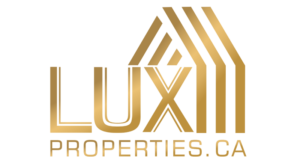Buying Cottages in Toronto
Buying Cottages in Toronto is a great investment. Cottages offer a peaceful retreat while staying close to city amenities. Toronto has beautiful cottages. They provide a mix of nature and urban convenience. Many buyers seek these unique homes. he market for cottages is competitive. Prices vary based on location, size, and features. Some cottages are near parks and lakes. Cottage living offers relaxation. Green spaces, fresh air, and privacy attract homeowners. It’s perfect for families and professionals.
Buying Cottages in Toronto allows for weekend getaways. Many people invest in cottages for rental income or personal use. There are different styles of cottages. Some are modern, while others have rustic charm. Buyers can find options that suit their taste. Transportation is convenient. Many cottages have easy access to highways and public transit. This makes commuting simple.
Neighborhoods with cottages have a strong community. People enjoy outdoor activities and social gatherings. Toronto’s real estate market is growing. Investing in a cottage can increase property value over time. Buying Cottages in Toronto offers comfort and convenience. Explore available options and find your dream cottage today!
Buying Cottages in Toronto : Available Types And Price
Buying cottages in Toronto is a great option for those looking for a peaceful retreat. There are various types available at different price ranges. Each type offers unique benefits, depending on location, size, and amenities. Understanding the market and pricing helps buyers make informed decisions.
Types of Cottages in Toronto
Toronto has different types of cottages, ranging from small rustic homes to luxury lakefront properties. Buyers can choose based on their needs and budget. Each type comes with specific features and advantages.
Rustic cottages are the most affordable option. These are small homes with minimal amenities, often located near wooded areas. They provide a traditional cottage experience but may require renovations. Prices typically start from $500,000.
Lakefront cottages offer stunning water views and direct lake access. They are highly desirable and come with modern features. These cottages often have docks, patios, and large windows. Prices usually range from $1,200,000 to $3,500,000, depending on location.
Luxury cottages provide high-end features and spacious interiors. They include smart home systems, private pools, and premium materials. These properties are located in exclusive areas and start at $3,000,000, going up to $10,000,000.
Eco-friendly cottages focus on sustainability. They use solar panels, energy-efficient materials, and water-saving systems. These homes appeal to environmentally conscious buyers. Prices range from $800,000 to $2,500,000.
Seasonal cottages are designed for summer or winter use. Some lack insulation, making them suitable only for warm months. Others have heating systems for year-round living. Prices vary from $600,000 to $2,000,000.
Popular Cottage Locations in Toronto
Some areas in and around Toronto are well-known for cottages. These locations provide great investment opportunities and excellent living conditions.
Toronto Islands offer a peaceful environment close to the city. Cottages here have limited availability, making them highly valuable. Prices start at $800,000 and can exceed $2,500,000.
Muskoka is a famous cottage destination near Toronto. It features beautiful lakes and luxury cottages. Prices range from $1,500,000 to $8,000,000, depending on waterfront access.
Kawartha Lakes is another sought-after area for cottages. It offers affordable and mid-range options. Homes here range from $700,000 to $3,000,000.
Georgian Bay provides stunning natural scenery and large waterfront properties. Prices start from $900,000 and can reach $6,000,000 for premium locations.
Lake Simcoe is a convenient location for Toronto residents. It has a mix of affordable and high-end cottages. Prices vary between $750,000 and $5,000,000.
Factors Affecting Cottage Prices in Toronto
Several factors influence the price of cottages in Toronto. Buyers should consider these before making a purchase. Location is the most important factor. Waterfront cottages are more expensive due to their scenic views and direct lake access. Remote cottages are cheaper but may lack amenities.
Size and property features also impact pricing. Larger cottages with multiple bedrooms and modern upgrades cost more. Additional features like docks, private beaches, and fireplaces increase value. Market demand affects price fluctuations. High demand during summer months raises prices. Buying off-season may offer better deals.
Renovation needs can impact cost. Older cottages requiring upgrades are cheaper but involve extra expenses. Fully renovated homes cost more but save on future repairs. Legal restrictions and ownership rules also play a role. Some cottages are on leased land, affecting long-term investment value. Understanding zoning laws is essential.
Additional Costs of Buying a Cottage in Toronto
Besides the purchase price, buyers should consider extra costs. These expenses affect overall affordability. Property taxes vary by location. Waterfront cottages have higher taxes. Buyers should check annual rates before purchasing. Maintenance costs include repairs, landscaping, and seasonal upkeep. Older cottages require more maintenance, increasing yearly expenses.
Insurance is necessary for cottage protection. Costs depend on location, property value, and risk factors like flooding. Utilities and services like water, electricity, and internet add to expenses. Some remote areas may have limited access to basic utilities. Condo fees apply to some cottage communities. These cover shared amenities like security, docks, and recreational facilities.
Investment Potential of Toronto Cottages
Buying a cottage in Toronto can be a profitable investment. Property values in popular locations increase over time. Short-term rentals offer high returns. Renting cottages on platforms like Airbnb generates passive income. Seasonal demand boosts rental rates. Long-term appreciation benefits investors. Waterfront properties gain value faster. Holding a cottage for several years yields better returns. Cottage resale value depends on maintenance and upgrades. Renovated homes sell at higher prices. Keeping the property in good condition maximizes profit. Government regulations affect investment potential. Some areas have rental restrictions. Buyers should research local laws before purchasing.
Pros and Cons of Buying a Cottage in Toronto
Owning a cottage has advantages and disadvantages. Buyers should weigh these before making a decision. Pros include relaxation and escape from city life. Cottages offer a peaceful retreat and fresh air. Investment potential is another benefit. Cottage prices generally appreciate, making them valuable assets. Rental income is possible for those not using their cottage year-round. Short-term rentals can generate extra money.
Cons include high maintenance costs. Older cottages need frequent repairs, increasing long-term expenses. Limited accessibility is a drawback for remote cottages. Some areas have seasonal road closures, affecting travel. Initial costs are high. Down payments, legal fees, and additional expenses make cottages expensive investments.
Buying cottages in Toronto offers great opportunities for investment and leisure. Various types are available, ranging from rustic homes to luxury waterfront properties. Prices depend on location, size, and features. Understanding the buying process, legal requirements, and additional costs helps buyers make informed decisions. Investing in a cottage provides relaxation and financial benefits. However, it requires careful planning and market research.
The Legal Process of Buying Cottages in Toronto
Buying a cottage in Toronto requires understanding legal procedures. The process involves financing, contracts, inspections, and property transfers. Each step ensures a secure and successful purchase. Buyers should follow legal requirements to avoid issues.
Getting Mortgage Pre-Approval
Mortgage pre-approval helps buyers determine their budget. Lenders evaluate credit scores, income, and financial history. This step ensures affordability before searching for a cottage. Pre-approval also strengthens negotiation power. Sellers prefer buyers with secured financing. It reduces the risk of deal cancellations due to financial issues.
Different lenders offer various mortgage terms. Buyers should compare interest rates and repayment plans. Consulting a mortgage broker provides better financing options.
Hiring a Real Estate Lawyer
A real estate lawyer handles legal aspects of the purchase. They review contracts, verify ownership, and ensure a smooth transaction. Their role is essential in protecting buyer rights. Lawyers check for outstanding property debts or legal disputes. They examine land titles to confirm legitimate ownership. This prevents future complications.
They also help with tax calculations. Buyers must understand property taxes and additional fees. A lawyer ensures compliance with local tax regulations.
Finding the Right Cottage
Selecting the right cottage involves considering location, price, and legal status. Buyers should research available properties before making a decision. Toronto has different types of cottages. Waterfront cottages have higher prices but offer scenic views. Off-grid cottages are cheaper but lack modern utilities.
Some cottages are on leased land. Buyers should verify land ownership before purchasing. Lease agreements may have restrictions on renovations or resale.
Making an Offer on a Cottage
Once a suitable cottage is found, buyers submit an offer. The offer includes price, conditions, and closing terms. Sellers may accept, reject, or negotiate. Conditional offers protect buyers. These include financing approval, home inspection, and legal review conditions. Buyers can withdraw if conditions are not met.
Deposit payments secure the deal. Buyers must pay a percentage of the cottage price upfront. This deposit is held in a trust account.
Conducting a Home Inspection
A home inspection ensures the cottage is in good condition. Inspectors check for structural damage, plumbing issues, and electrical safety. This step prevents unexpected repair costs. Waterfront cottages require additional inspections. Buyers must check for shoreline erosion, septic system conditions, and water quality. These factors impact long-term property value.
If major issues are found, buyers can renegotiate the price. Sellers may offer repairs or reduce the cost. This protects buyers from unforeseen expenses.
Reviewing the Purchase Agreement
The purchase agreement is a legal document outlining the sale terms. Buyers should carefully review this contract before signing. A lawyer ensures it protects their interests. The agreement includes payment details, closing dates, and included fixtures. It also states penalties for contract breaches. Buyers must understand all terms before proceeding.
Legal clauses may include seller disclosures. These reveal past property issues. Hidden problems can affect the property’s value and livability.
Finalizing the Mortgage Approval
Once the offer is accepted, buyers finalize their mortgage. The lender completes a final assessment and issues the mortgage contract. Buyers must review loan terms carefully. Mortgage approval involves verifying down payment sources. Buyers should ensure their funds meet legal and banking requirements. Unverified sources can delay approval.
Loan conditions must be met before closing. Missing paperwork or incorrect information can cause last-minute complications. Buyers should stay in contact with their lender.
Paying Land Transfer Tax and Additional Fees
Land transfer tax is a mandatory cost for buyers. The amount depends on the cottage price. Toronto buyers may qualify for tax rebates. Legal fees cover lawyer services. These include contract review, property title checks, and document preparation. Hiring an experienced lawyer prevents legal issues. Other fees include home insurance, appraisal costs, and utility setup charges. Buyers must account for these expenses in their budget.
Title Search and Ownership Verification
A title search confirms the seller’s legal right to sell the cottage. It ensures no unpaid mortgages or claims exist against the property. Title insurance protects buyers from future disputes. It covers ownership issues, fraud, or clerical errors. Most lenders require title insurance. Easements and zoning restrictions affect property use. Buyers should check if any restrictions limit renovations or future developments.
Final Walkthrough Before Closing
Before closing, buyers conduct a final walkthrough. This ensures the cottage remains in the agreed condition. Any damages or missing items should be addressed. Buyers verify that included appliances and fixtures are intact. Sellers must leave the property as specified in the contract. Unresolved issues may delay closing. Buyers should report concerns to their lawyer immediately. Negotiations may be required for necessary repairs.
Closing the Sale and Transferring Ownership
Closing is the final legal step. Buyers sign documents, pay remaining costs, and receive property ownership. The lawyer handles paperwork submission. The buyer’s funds are transferred to the seller. Once payments clear, the property title is officially transferred. Keys are handed over after closing. The buyer can then take possession of the cottage. Legal documents should be safely stored for future reference.
Post-Purchase Responsibilities
After buying a cottage, buyers must update property records. Utility providers, tax offices, and insurance companies need the new owner’s details. Regular maintenance ensures long-term property value. Cottages require seasonal upkeep, especially in cold climates. Neglecting maintenance can lead to costly repairs. Understanding community rules is important. Some cottage areas have restrictions on rentals, renovations, or dock usage. Buyers should familiarize themselves with local regulations.
Common Legal Challenges in Cottage Purchases
Some cottages have unresolved legal issues. Buyers should be aware of common challenges that may arise. Boundary disputes can occur between neighbors. Surveying the property lines before buying prevents conflicts. Environmental regulations affect some cottage properties. Wetland protection laws may limit development or shoreline modifications. Buyers must check local regulations. Illegal renovations can cause legal troubles. If previous owners made unapproved changes, buyers may be responsible for compliance corrections.
Tips for a Smooth Legal Process
Hiring experienced professionals simplifies the process. A reliable lawyer and real estate agent help navigate legal complexities. Reading all documents carefully prevents misunderstandings. Buyers should ask questions if any contract terms seem unclear. Keeping financial records organized speeds up mortgage approval. Buyers should prepare documents in advance to avoid delays. Understanding future costs ensures financial stability. Buyers must plan for property taxes, insurance, and maintenance expenses.
The legal process of buying cottages in Toronto involves multiple steps. Buyers must follow financing, contract, and inspection procedures carefully. Hiring legal professionals ensures a smooth transaction. Understanding legal requirements protects buyers from unexpected issues. Proper research, preparation, and expert guidance lead to a successful cottage purchase.


